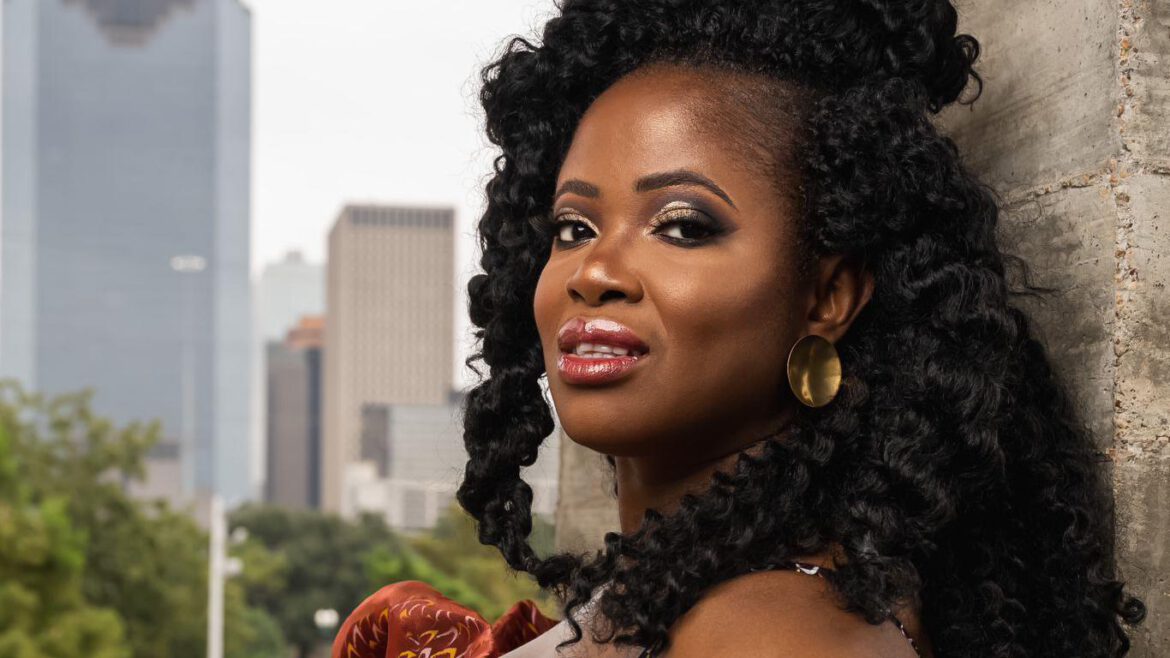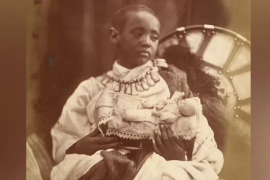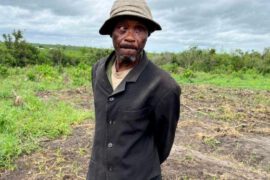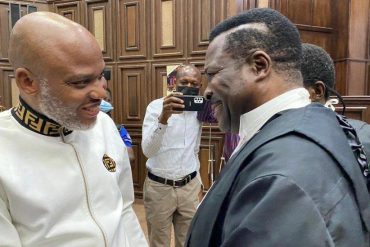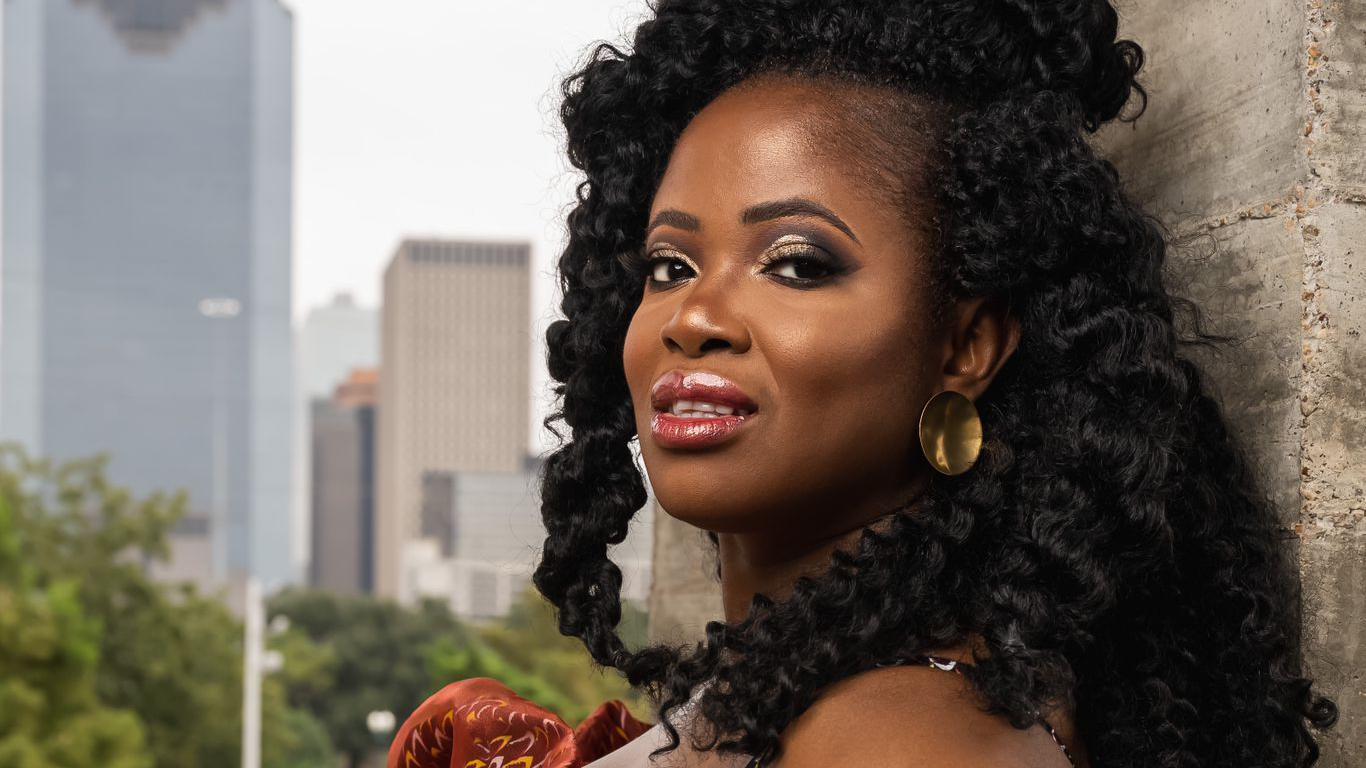
“Wetin dey at stake na di ability for us as immigrant to dey here, to do business and vote here,” Annette Njau tok. She be Sierra-Leonean American lawyer and business owner for Texas.
Members of di 300,000-strong African diaspora wey dey live for Texas dey work hard to rally dia communities to vote ahead of di US presidential election on 5 November.
“Even though I no know how my business go [perform] under either administration, I go make sure say my business survive,” Njau add.
“E get a lot of division and hostility wey surround issues of race and immigration. Dis dey impact our community well well,” Nneka Achapu, wey be Nigerian American and di founder of African Public Affairs Committee (AfricPac), tok.
Texas na reliably ‘red’ or Republican state afta years of Bush candidates. But for 2020, Republican Donald Trump bin win di state by 6.5% ova Democrat Joe Biden, di narrowest margin between di two parties since 1996.
- Wetin be di electoral college wey go elect US president?
- US presidential election poll: Who dey lead – Harris or Trump?
Now di demographics of Texas dey change. Di African diaspora for di state na di biggest for di US, comprising of Nigerians, Ghanaians, Kenyans and Ethiopians among many odas. Although di community na one of di fastest growing, many tok say dem feel ignored by di goment.
“As a young pesin, di main tin we dey worried about na how I go survive, how I go wake up for morning and not to dey worried about how to pay my bills, not to dey worried about saving for di future,” Udeme Anthony tok. She be first generation Nigerian American and current Miss Nigeria USA.
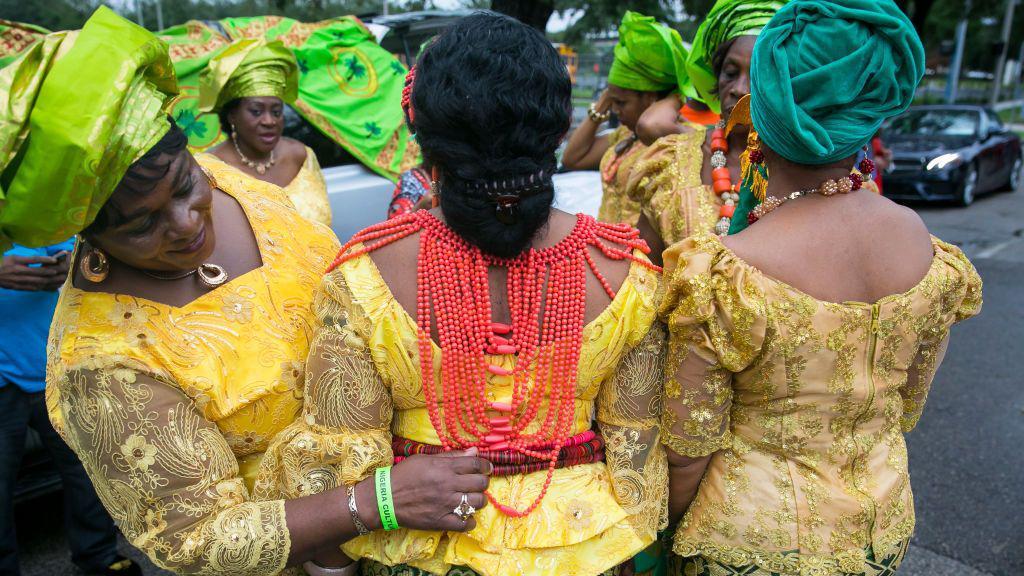
Texan African life
Nicknamed ‘Little Nigeria’, Houston na home to di largest number of Nigerians for US – some 60,000 pipo.
Several of im bustling streets fit dey easily mistaken for Lagos. E get Nigerian-owned businesses and cultural centres wey reflect a blended Nigerian Texan life. E dey common to see pipo in colourful African fabrics wey dey tok in African languages wey dey recognisable or hear Afrobeats dey play from nearby restaurant or supermarket.
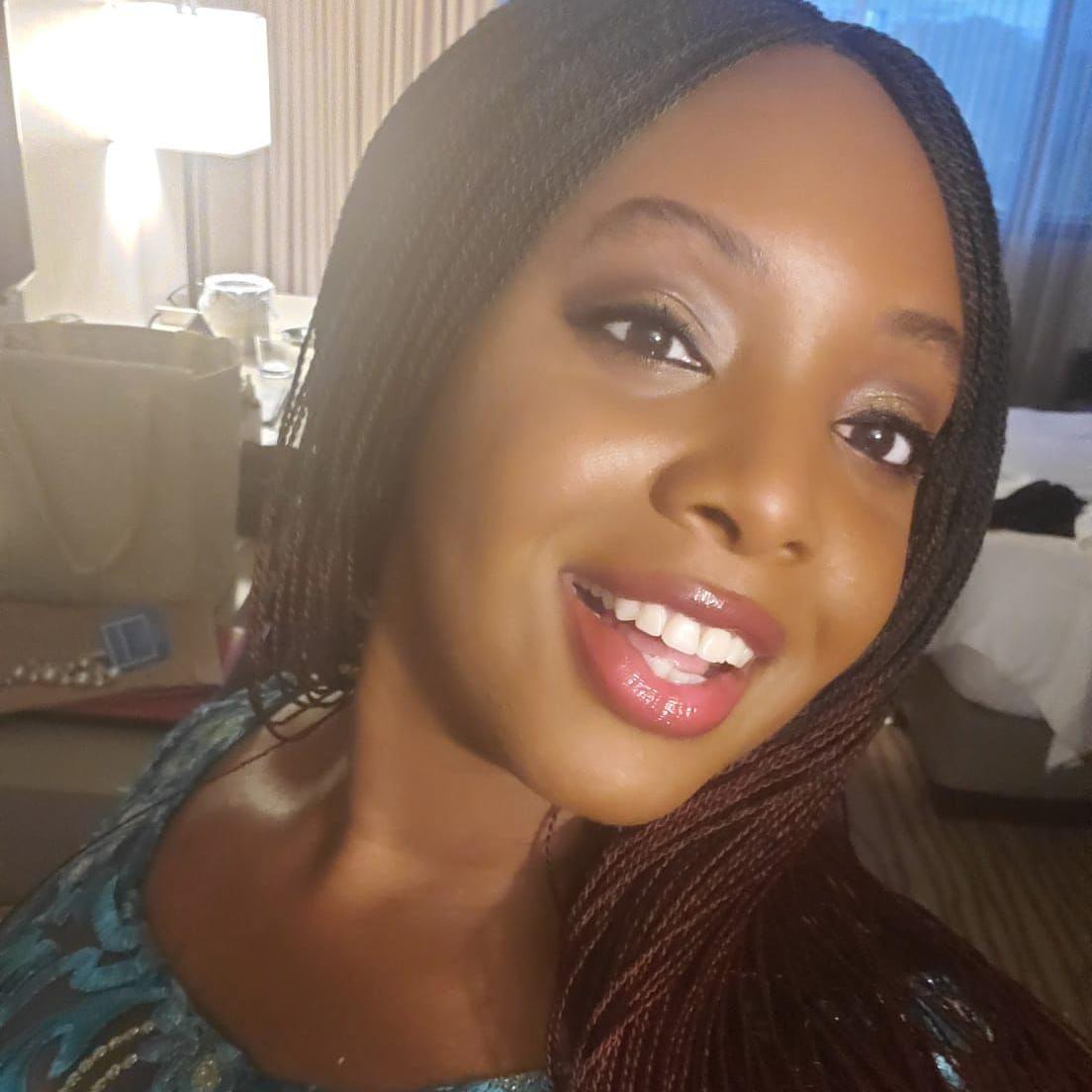
African immigrants don make ogbonge contributions to Texas economy through entrepreneurship, investments in small businesses, healthcare, and di oil and gas sectors. Small businesses wey African immigrants get dey blend African culture wit local Texan life through food, clothing, and oda goods.
“Religion na also veri important part of our life,” a second-generation Nigerian American Ivy Okoro tok.
“Weda you be Christian or Muslim, we take our spirituality veri serious.”
Voter registration dey drive, town hall, and workshops dey happun across di state for African churches, community centres, and local businesses to persuade di community say dia vote fit make a difference.
Although e get rising number of Africans wey dey live for di state, civic engagement among di community don dey historically low. Di US Census Bureau Current Population Survey on voting and registration report say around 61% of Black citizens of voting age cast ballots for Texas.
While dis figure include both African Americans and African immigrants, e dey give a general indication of Black voter engagement for di state.
Maazi Okoro – Ivy papa – na first-generation Nigerian American wey arrive for di US for 1977. E tok say im and oda Africans bin dey focused on getting education so dem go fit return to dia home kontri and contribute to nation building. Dem bin get little interest for US civic engagement wey im tok say bin create a feeling of lack of interest.
“We bin dey so proud of our kontris and we bin no want anytin wey go keep us here, not to tok of participating in American democratic processes,” e tok.
But years on, dis first-generation Africans don dey naturalised in America and don build strong communities, businesses and families.
“Becos we bin no dey participate, we bin no provide role models for our younger ones to see and join di political process but dat gatz change! We gatz up our game for di political process of dis kontri,” Okoro tok.
“Now we get Nigerian children wey fit neva come back Nigeria, but dem fit provide voice wey go impact Africa generally if dem participate.”
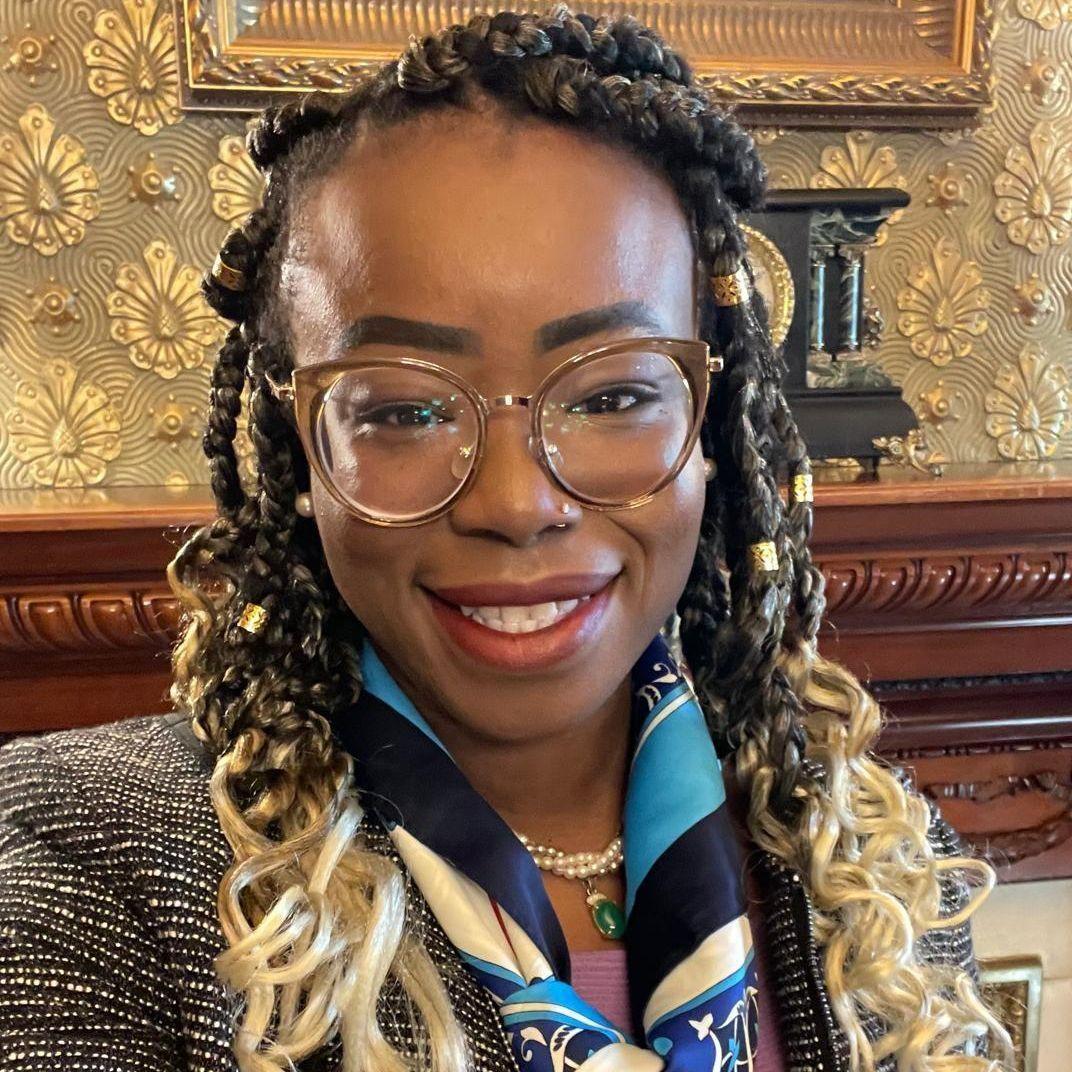
‘High stakes’
Immigration policy dey at di heart of di 2024 election for many African immigrants and na deeply emotive issue.
Many find navigating di US immigration system almost impossible sake of long processing times for visas, limited opportunities for asylum seekers and strict requirements for green cards.
Some dey question weda di system dey reflect a deeper political agenda.
“Shey anti-Blackness dey affect immigration to di point wey we no fit get visas?” AfricPac founder Nneka Achapu tok.
“Wetin di African diaspora dey look for, from either administration, na more humane policies – wey prioritise not just di African diaspora but American families,” she tok.
Achapu go like see beta policies on family reunification, work permits and deportations wey go allow more African families to settle and find employment for US.
Policies aside, di criminalisation of immigrants throughout di campaign na more worry for Africans for US.
Racist statements wey politicians dey use don castigate immigrants, particular dose from Africa and oda developing regions, and e dey paint dem in negative light.
“E no dey okay for presidential candidate for major kontri like America to insult, castigate and use disrespectful words to describe and categorise certain pipo falsely,” Professor and Dean of di School of Communication for The Southern University, Texas, Dr Christian Ulasi, tok.
“To single out a generation or to single out a race and to brand dem as criminals and as disease infested no good for di kontri, punishment suppose dey for dat, pipo suppose punish dat candidate wen dem get to di poll,” e tok.
“Di stakes dey really high for dis election,” Annette Njau tok. She be Sierra-Leonean American lawyer and business owner.
“I be immigrant; I come here wit my family as pikin. I bin go school, I bin go law school and pay my taxes. So, for pesin to use immigration as political weapon show lack of humanity,” she tok.
“I feel like dis election gatz dey about di community, and di community no need pipo wey go continue to divide us and turn us into villains.”
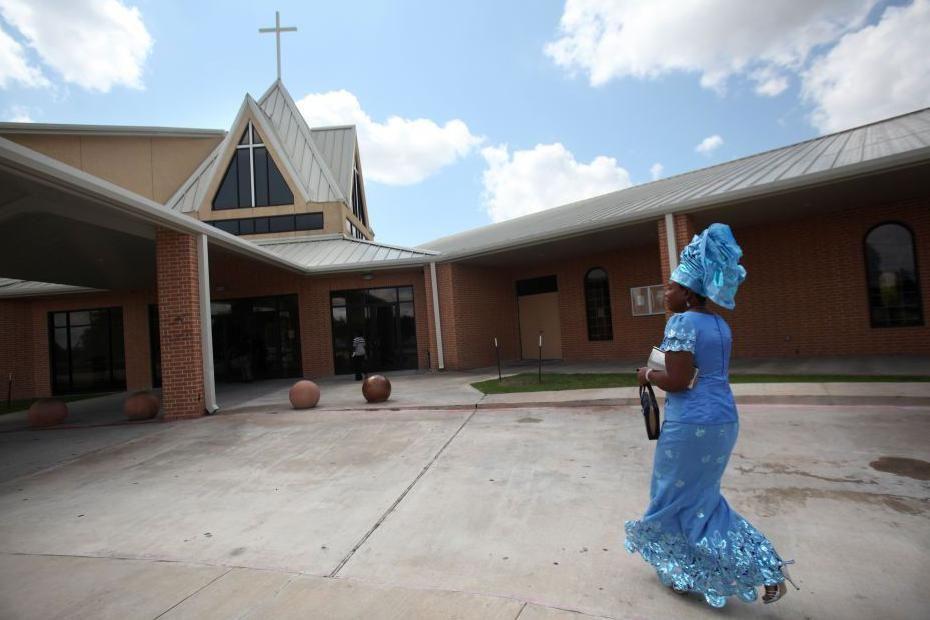
Di US on di global stage
US foreign policy also dey of ogbonge concern for African immigrants.
As of 2021, e get around 2.4 million African immigrants wey dey live for US, many still dey connected to dia kontris of origin through familial, social, and economic ties, according to di Migration Policy institute.
For dem, maintaining positive US-Africa relations dey deeply personal. Some maintain dual citizenships to regularly travel back home.
“For me as African for America wey dey do business here, I wan see goment wey go drive bilateral relationships, wey go appreciate di potential wey Africa get and foster stronger collaboration,” Maazi Okoro tok.
For 2022, remittances to sub-Saharan Africa na approximately $53 billion, wit a substantial portion of dat from African immigrants wey dey US, according to di World Bank.
For young pesin like Udeme Anthony, di success of di US economy go determine how she vote.
“If we dey led by individuals wey no necessarily care if we fit survive and save or get a little bit of extra to give our families, e go dey hard for us to send moni to our pipo back home,” she tok.
African voters dey also look for candidates wey go prioritise constructive, respectful partnerships wey fit benefit Africans as well as di US.
“Dem be pipo wey America fit use as asset to propel US-Africa relations, by using us to bridge dat gap. Dem no suppose look us as liability,” Achapu tok.
While Texas lack African-born politicians, e get growing awareness wey say political power come from civic engagement. Organisations like Achapu AfriPac dey lead efforts to educate and empower dia communities to become more involved.
“Representation no dey always guarantee change, but to get few champions dey help. We gatz dey present for di political system,” Achapu tok.

